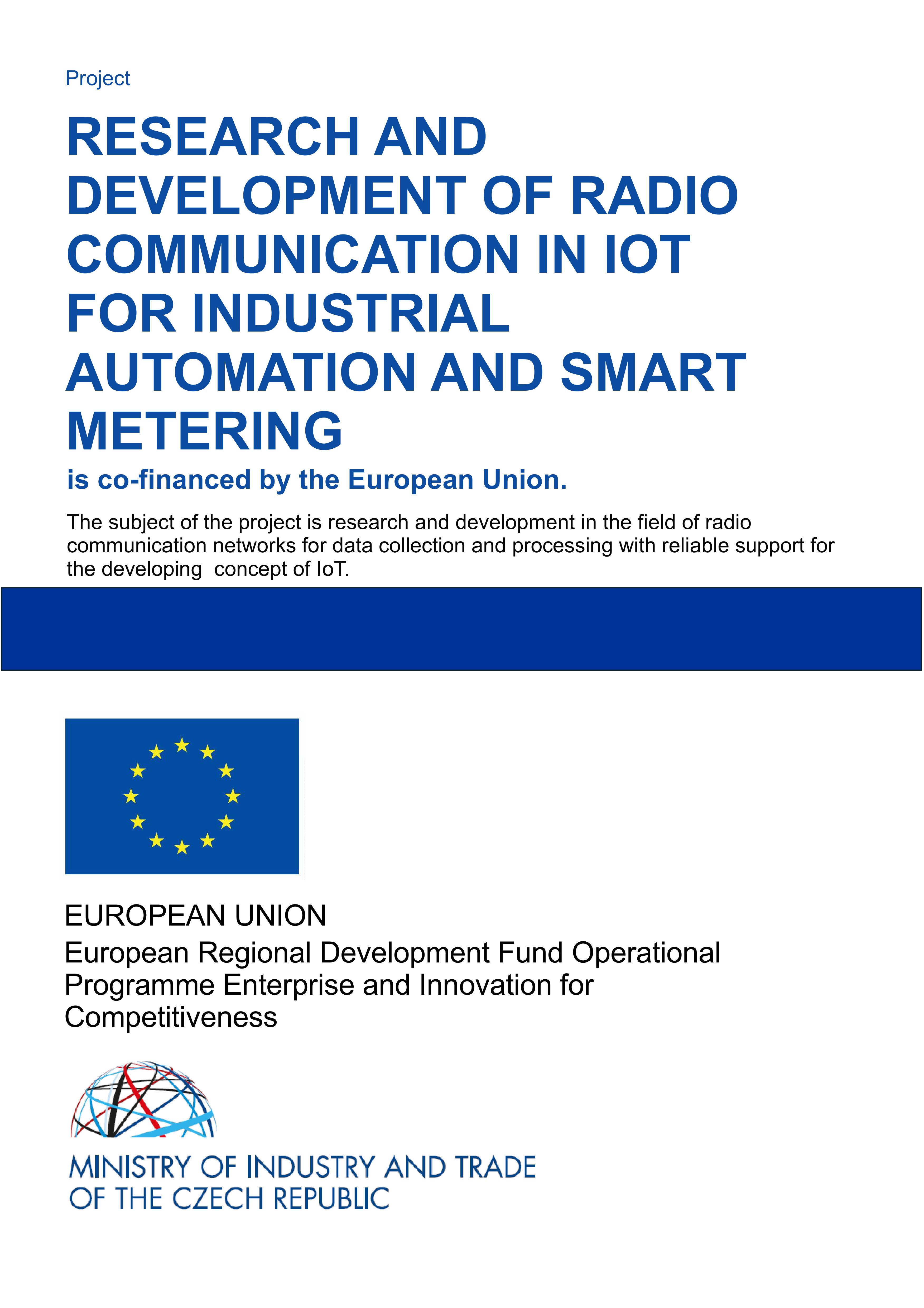Research and Development of Radio Communication in IoT for Industrial Automation and Smart Metering
Basic Project Information
The presented project builds upon more than 18 years of market presence and previous research and development activities by SOFTLINK s.r.o. in the field of radio data transmission technologies, particularly for smart metering applications.
The main reasons for implementing the project include:
- Technological advancement and the rising interest in broad IoT technology applications in smart metering, smart grids, and industrial automation.
- The effort to further develop radio technologies to cover areas without signal from other wireless technologies. We are currently in a period of rapid development of these technologies, utilizing different communication principles, protocols, and frequency spectrum usage. A key limitation of current radio technologies is the unreliable data transmission in larger structures, issues with bidirectional communication, and/or the high acquisition and operational costs of competing radio technologies (and sensors) which are often prohibitive for use by small and medium-sized enterprises or residential buildings.
- The implementation of the Industry 4.0 concept across various industrial sectors, where the development of methods using intelligent sensor networks and smart utilization of sensor data in SCADA systems is considered an essential tool.
- Technological readiness for upcoming legislative changes in energy management.
- Supporting the development of intelligent technologies for the introduction of smart city concepts.
The project's research and development focus on a new narrowband radio network type LPWAN for IoT applications, referred to by the applicant under the trade name WACO-NB. It is a wireless network with MESH topology used for establishing long-distance telecommunication connections. The network is easily accessible, with low acquisition and operational costs.
Within the project, a complete ecosystem based on the WACO-NB protocol will be developed and tested:
- Combined sensors
- Infrastructure (RF modules)
- A new software application, CEM Control, which will expand the applicant’s existing software applications
This will result in an affordable and reliable ecosystem for customers, covering various fields according to their area of expertise – smart metering, energy supply quality management, intelligent operational dispatch, and intelligent building management.
The project aims to address the following key R&D challenges:
- Ensuring adequate protection against interference within license-free frequency bands
- Expanding the reach of WACO-NB data transmission by increasing receiver sensitivity
- Ensuring RF module backward compatibility
- Supporting bidirectional communication in the network
- Extreme efficiency of target sensors
- High reliability and precision of developed sensors
The applicant's ambition is for the new WACO-NB protocol to become a standardized protocol that reliably meets the parameters and functions required for IoT use, paving the way for other IoT technology manufacturers to adopt it in their developments.
The project is conducted in effective collaboration with the University Centre for Energy Efficient Buildings at CTU in Prague.
The project aligns with the National RIS3 strategy. The research and development undertaken as part of this project primarily focus on the national specialization domain, the priority application domain of Mechanical Engineering – Mechatronics, and the application domain of the digital economy and digital content; knowledge domain: Micro and Nanoelectronics.

